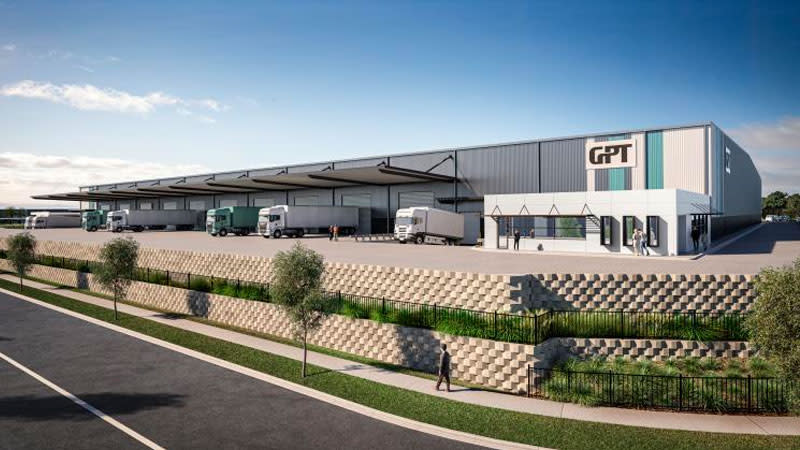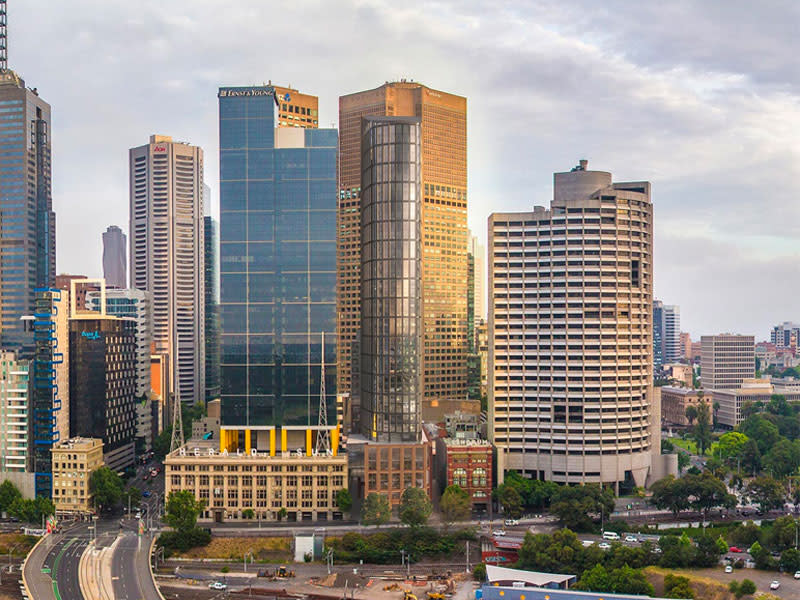Resources
Newsletter
Stay up to date and with the latest news, projects, deals and features.
Subscribe
Landlord and fund manager GPT Group has been bolstered by the ongoing strength of the logistics market and the retail recovery, posting an 8 per cent lift in earnings for the June half year compared to the previous corresponding period.
GPT owns and manages a $26.9-billion portfolio, diversified across shopping malls, office towers and logistics assets.
Funds from operations—the standard earnings metric in the property sector—hit $326.5 million, resulting in FFO per security of 17.04c, up from 15.64c in the first half of last year.
Net profit after tax fell 30 per cent to $529.7 million, while net tangible assets rose 2.8 per cent to $6.26, mostly due to revaluations in the logistics and retail portfolios.
GPT has upgraded its full-year funds from operations to 32.4c per security, at the top end of its previous guidance.
But the interim distribution was cut 4.5 per cent to 12.7c per security.
GPT chief executive Bob Johnston said its earnings boost had been driven by a 3 per cent lift in income from its retail portfolio and 14 per cent lift in the annual total return across its burgeoning logistics portfolio.
“The logistics sector is benefiting from ongoing structural tailwinds. Vacancy rates remain very low in the core markets nationwide, resulting in an expectation for further increases in market rents,” Johnston said.
“There has been a strong recovery in sales performance across GPT’s retail portfolio, buoyed by low unemployment and elevated levels of household savings.”

GPT’s logistics portfolio has since grown to $4.6 billion in value and now represents 28 per cent of the group’s diversified portfolio with a $1.9 billion pipeline of development projects in the sector on the horizon.
The company’s logistics portfolio kept up its occupancy, now at 98.7 per cent with a weighted average lease expiry of 6.2 years, driven by transport and retail trade groups taking up 228,000sq m of new space.
GPT is also rolling out new projects with Canadian investment giant QuadReal—a strategic partnership that was struck in February 2021.
Within its retail segment, total centre sales were up 11.5 per cent on the same period last year to reach pre-Covid levels, with Melbourne Central, Highpoint Shopping Centre and Rouse Hill Shopping Centre among the highest growth centres driving its results.
Developments are under way at the group’s Rouse Hill precinct to include a further 10,800sq m of retail space and 200-plus apartments as well as the next stage of Highpoint Shopping Centre preparing to be lodged at the end of the year.
Earlier this year GPT nabbed a $2.8-billion mandate from UniSuper comprising four retail and two office assets. It includes Perth‘s Karrinyup Shopping Centre, along with a 25 per cent interest in Brookfield Place in Sydney.
GPT‘s $6.1-billion office portfolio delivered solid results across the first half of the year, with occupancy at 92 per cent with the segment contribution up 11 per cent as a result of reduced vacancies and acquisitions.
Leasing activity across the office portfolio improved in the June quarter, with 51,900sq m of space being leased or under heads of agreement during the first half with the most active segment from mid-size and larger tenants searching for floorspace in the sub 1000sq m bracket.

GPT has expanded its office development pipeline to $5.5 billion and is pressing ahead with a speculatively developed office tower at 51 Flinders Lane in Melbourne, which will be its first embodied carbon-neutral office project. Expected delivery is earmarked for late 2025.
The property group committed towards its sustainability program, claiming to now have more carbon neutral floor space than any other Australian property owner, while aiming to have the assets it manages carbon-neutral by 2024.
Johnston said looking ahead inflation in excess of 7 per cent this year would undoubtedly slow economic growth and consumption in time and in turn would increase GPT’s cost of debt in the second half of 2022 and further into 2023.
“We have seen rapid change in economic conditions over the last six months, however, unemployment is forecast to remain well below long-term averages, and inflation should retract materially over the course of 2023,” he said.
“We are continuing to see good momentum across our retail portfolio with strong sales growth and leasing activity and logistics market conditions remain very favourable with elevated tenant demand, low vacancy and constrained supply.
“For the office sector, we are providing flexible space and leading-edge fit-outs in response to changing customer preferences and this is achieving results.”
Moody’s Investors Servicevice president Saranga Ranasinghe said the results for the half year were in line with the rating expectations.
“Despite the uncertain economic environment driven by higher inflation and interest rates, all three of GPT’s business segments—office, retail and logistics—reported an improvement in funds from operations,” Ranasinghe said.
“GPT continues to benefit from the diversification and quality of its asset portfolio.
“The REIT has maintained strong office occupancy levels at around 92 per cent, despite the Sydney and Melbourne office markets facing vacancy levels that are well above the historical average.”